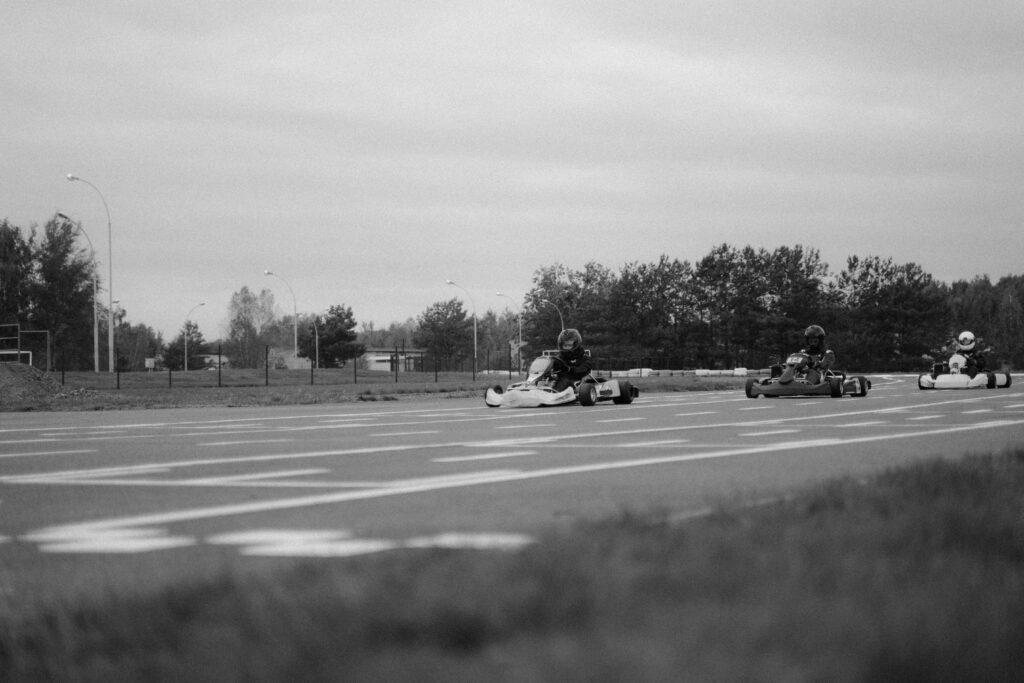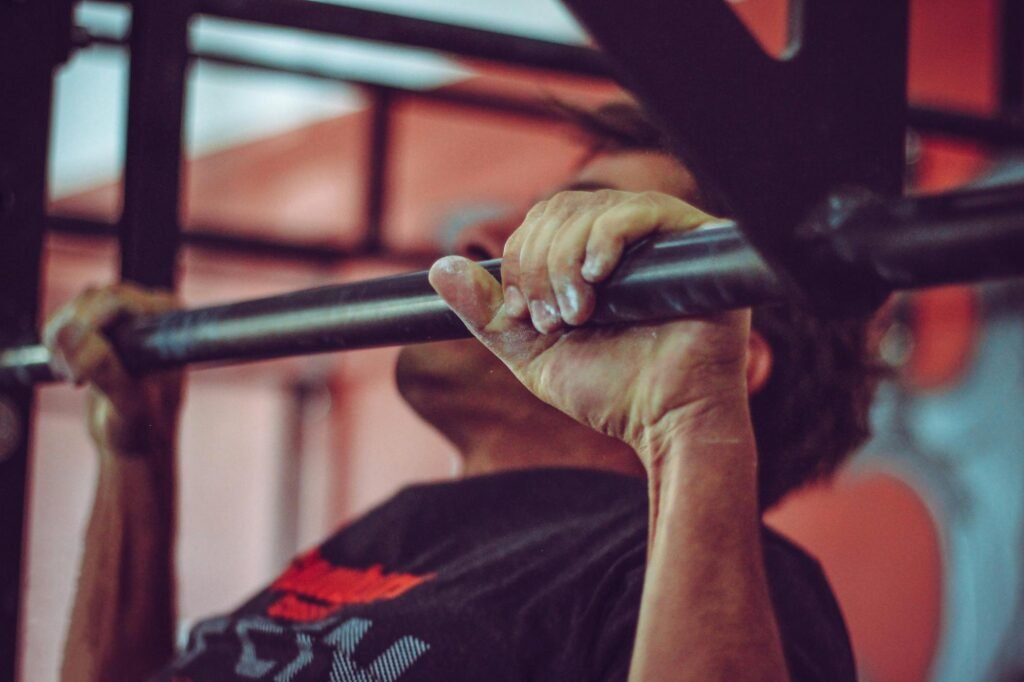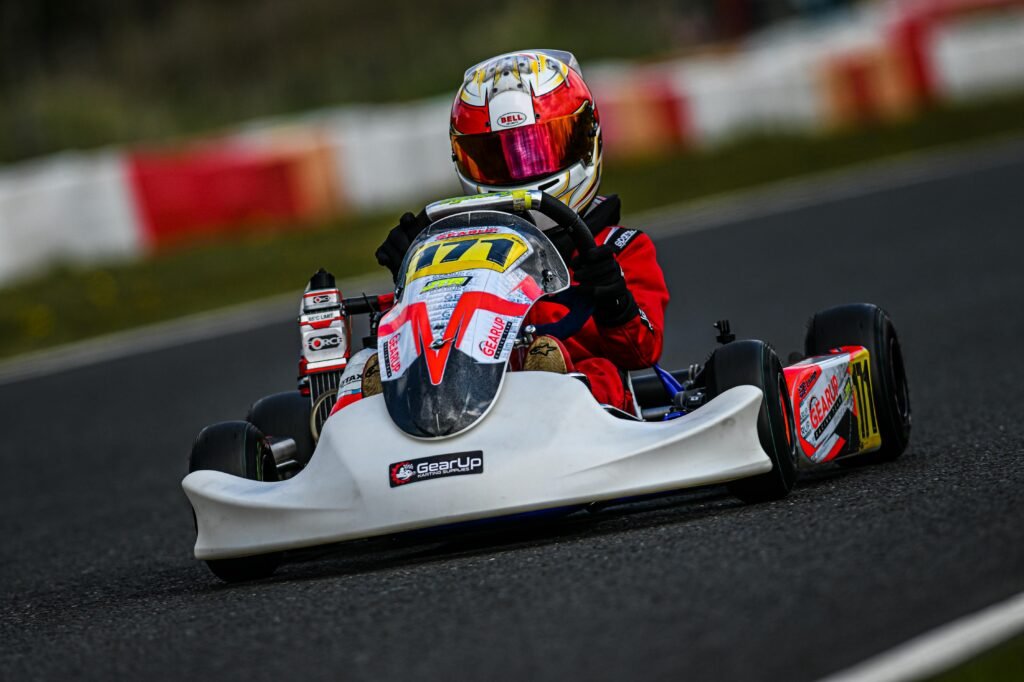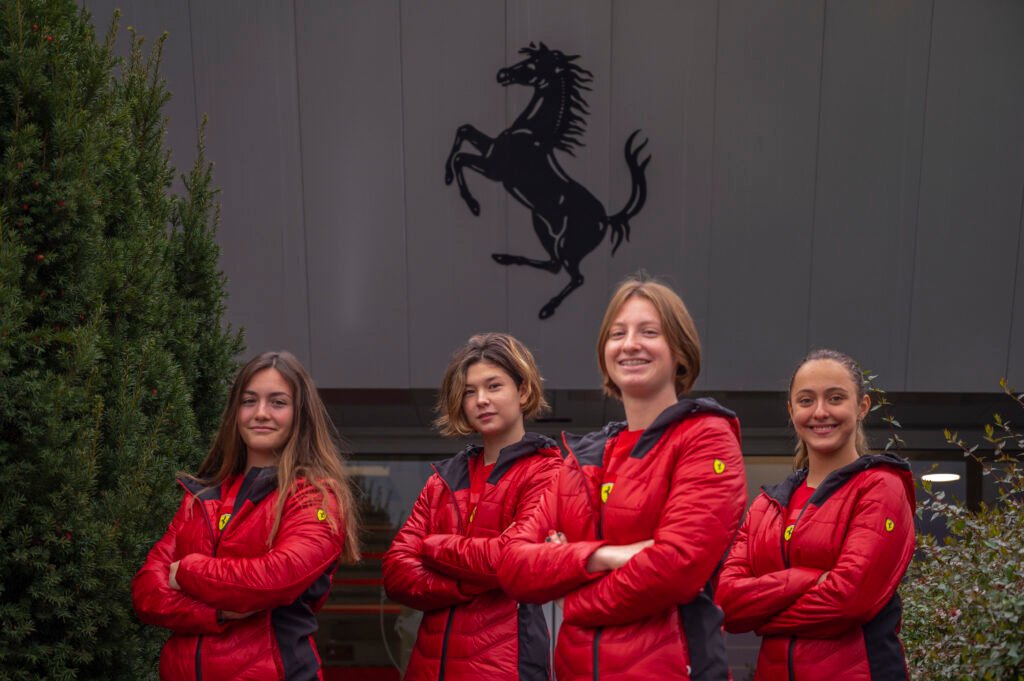Karting has long been regarded as the gateway to the world of professional motorsport. Many of today’s racing icons, including Formula 1 stars like Lewis Hamilton, Sebastian Vettel, and Max Verstappen, began their illustrious careers behind the wheel of a go-kart. With its emphasis on skill, speed, and strategy, karting provides a unique training ground that sharpens both mental and physical abilities, making it an essential stepping stone for any aspiring professional racer.
In this article, we’ll explore how karting serves as a crucial foundation for a successful motorsport career and why serious racers should take it seriously.

1. Developing Essential Driving Skills
Karting teaches drivers the fundamentals of vehicle control, which are vital when moving to larger, more complex race cars. Despite the smaller size and lower power of go-karts, the driving dynamics—including cornering, braking, and accelerating—are similar to those of full-size racing cars.
Key driving skills honed through karting include:
- Throttle and brake control: Precision is key in karting, where drivers must manage acceleration and braking to navigate corners and maintain optimal speed.
- Racecraft: Karting teaches drivers how to position themselves during races, choose the optimal racing line, and make tactical overtakes, all of which are essential for success in higher racing categories.
- Cornering techniques: Tight corners are frequent in karting, forcing drivers to master entry and exit techniques. This prepares them for the demands of handling high-speed corners in professional race cars.
Why it matters: Karting develops critical vehicle control skills, providing drivers with a solid foundation for navigating high-performance race cars and dealing with the extreme forces encountered in professional motorsports.
2. Learning Race Strategy and Tactics
In karting, winning isn’t just about raw speed—it’s about strategy and decision-making. Drivers must manage factors like tire wear and fuel consumption (in longer races), as well as knowing when to push and when to conserve energy.
Strategic lessons from karting:
- Overtaking tactics: Knowing when and where to pass a competitor without compromising position is a key skill, and karting offers countless opportunities to refine this.
- Defensive driving: Protecting a lead while maintaining speed is a fine art. Karting teaches drivers to use the racing line effectively to block opponents and defend their position.
- Weather adaptability: Karting exposes racers to various conditions, such as rain or temperature shifts, helping them adapt their driving style based on track conditions.

Why it matters: Professional racing requires constant strategy adjustment, often based on real-time data. Karting teaches drivers to think ahead, manage race conditions, and make quick, strategic decisions.
3. Building Physical and Mental Endurance
While go-karts are smaller than full-size race cars, karting is physically and mentally demanding. Drivers develop core strength—crucial for handling the g-forces experienced in racing—and build mental endurance by focusing on multiple factors like speed, position, and competition behavior for extended periods.

- Physical endurance: Karting requires sustained physical effort, especially in the arms, shoulders, and core. Handling the kart at high speeds demands strength and stamina, helping young racers develop the fitness required for professional motorsports.
- Mental resilience: Racing karts sharpens reaction times and concentration, helping drivers maintain focus even under pressure, a skill essential for higher-level racing.
Why it matters: Professional racing demands a high level of fitness and mental endurance, particularly in endurance races like Le Mans or Formula 1. Karting helps build the physical and mental stamina needed for these challenges.
4. Understanding Vehicle Dynamics
Go-karts, with their stripped-down design, provide an excellent introduction to vehicle dynamics—the forces acting on a vehicle in motion. Without advanced electronics or aerodynamics, drivers rely on their understanding of how the kart interacts with the track to maintain control.
Key dynamics learned through karting:
- Weight distribution: Karting teaches drivers how shifts in weight during acceleration, braking, and cornering affect grip and handling.
- Traction and grip: Without electronic traction control, kart drivers must master tire grip through precise throttle and steering control.
- Suspension and handling: Go-karts generally lack suspension, forcing drivers to feel every bump and nuance on the track, sharpening their sensitivity to how even minor adjustments affect the kart’s behavior.
Why it matters: A deep understanding of vehicle dynamics in karting provides a critical edge when transitioning to more complex race cars. Drivers who grasp these concepts can adapt quickly to new vehicles and track conditions.

5. Exposure to a Competitive Racing Environment
Karting provides young drivers with an early taste of the competitive world of motorsport. Many karting circuits host professional-level races that simulate the intensity of higher categories like Formula 3 or Formula 2, allowing drivers to experience the pressures of racing against top-tier competition.
Competitive lessons from karting:
- Pressure management: Karting races are intense, and learning to stay calm and focused under real-time pressure is a crucial skill for any racer.
- Race rules and regulations: Karting teaches drivers the fundamentals of motorsport regulations, from overtaking protocols to safety standards, preparing them for the more rigid rules in professional racing.
- Sponsorship and team dynamics: Karting introduces drivers to the business side of motorsport. Understanding how to work with sponsors, manage team expectations, and navigate the logistics of racing are vital skills for a professional career.
Why it matters: The ability to handle pressure, manage expectations, and operate within a competitive environment is essential in professional racing. Karting helps drivers develop these skills early on.
6. Pathway to Higher Racing Categories
Karting is globally recognized as the starting point for most professional racing careers. It serves as the foundation for moving into higher levels like Formula 4, Formula 3, and eventually, Formula 1.

Top-tier karting championships, such as the Rotax Max Challenge and CIK-FIA Karting Championships, provide young drivers with a platform to showcase their talent. Success in these events often leads to recruitment by racing academies, including prestigious programs like the Ferrari Driver Academy or Red Bull Junior Team.
Why it matters: Karting is the launchpad for many racing careers. Drivers who excel in karting are often scouted by professional teams, and the skills developed at this level are transferable to any form of racing.
7. Building a Professional Mindset
Beyond technical skills, karting instills a professional mindset in young drivers. Discipline, dedication, and hard work are essential traits for success in motorsport, and karting helps drivers build these habits early on.
- Training: Karting teaches drivers the importance of preparation, both physically and mentally, ensuring they are ready for race day.
- Work ethic: Success in karting requires constant practice, study of techniques, and physical fitness—all of which translate into a strong work ethic needed at the highest levels of racing.
Why it matters: A professional mindset is key to making the transition from karting to full-time racing. The discipline and focus developed in karting are critical to achieving long-term success in motorsport.
Karting as the Foundation for Racing Success
Karting is far more than a childhood pastime—it’s the foundation for a successful career in motorsport. By developing essential driving skills, race strategies, endurance, and a competitive mindset, karting equips young racers with the tools they need to tackle the professional racing circuit. Whether your goal is to compete in Formula 1, Le Mans, or NASCAR, karting provides the experience, exposure, and skill development necessary to succeed in the fast-paced world of motorsport.
Dreaming of a professional racing career? It all starts with karting. Get on the track at Aruani Grid Motorsports Academy in Bangalore, hone your skills, and start your journey toward motorsport success today!
